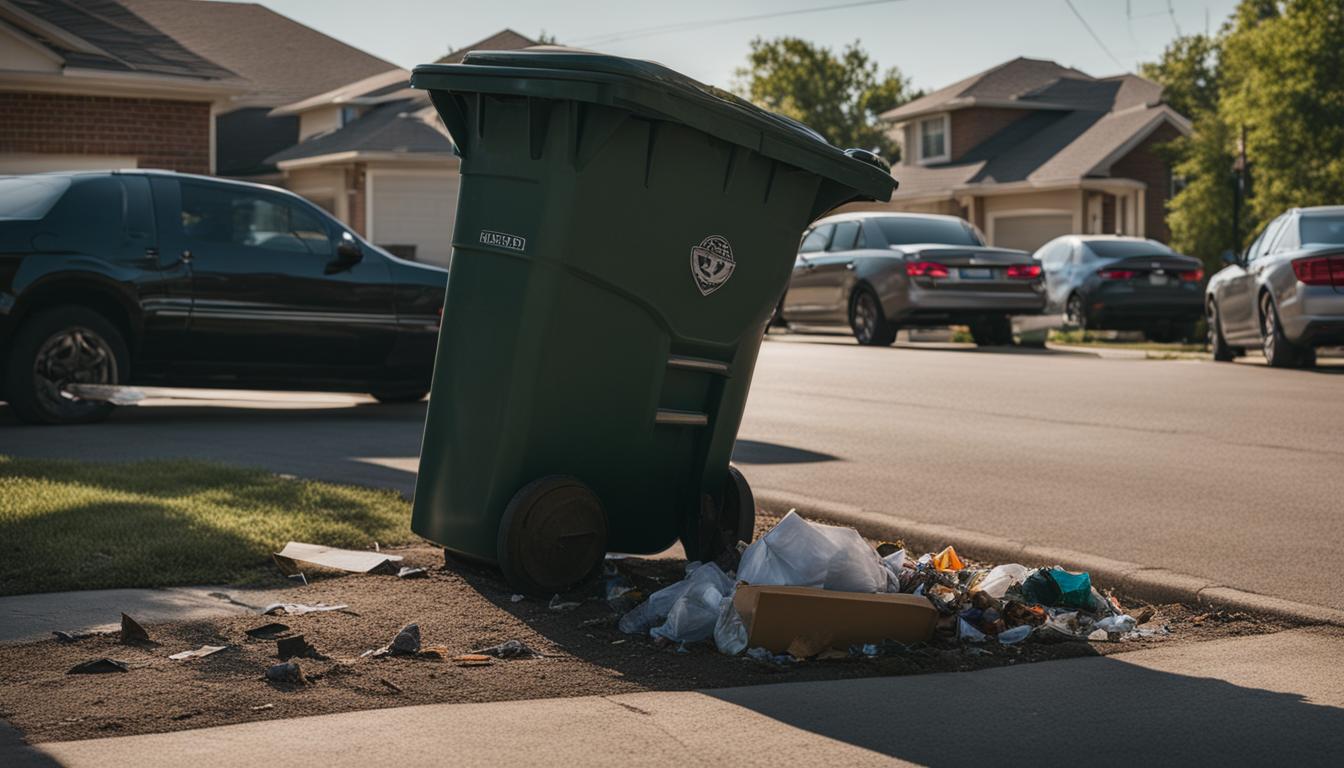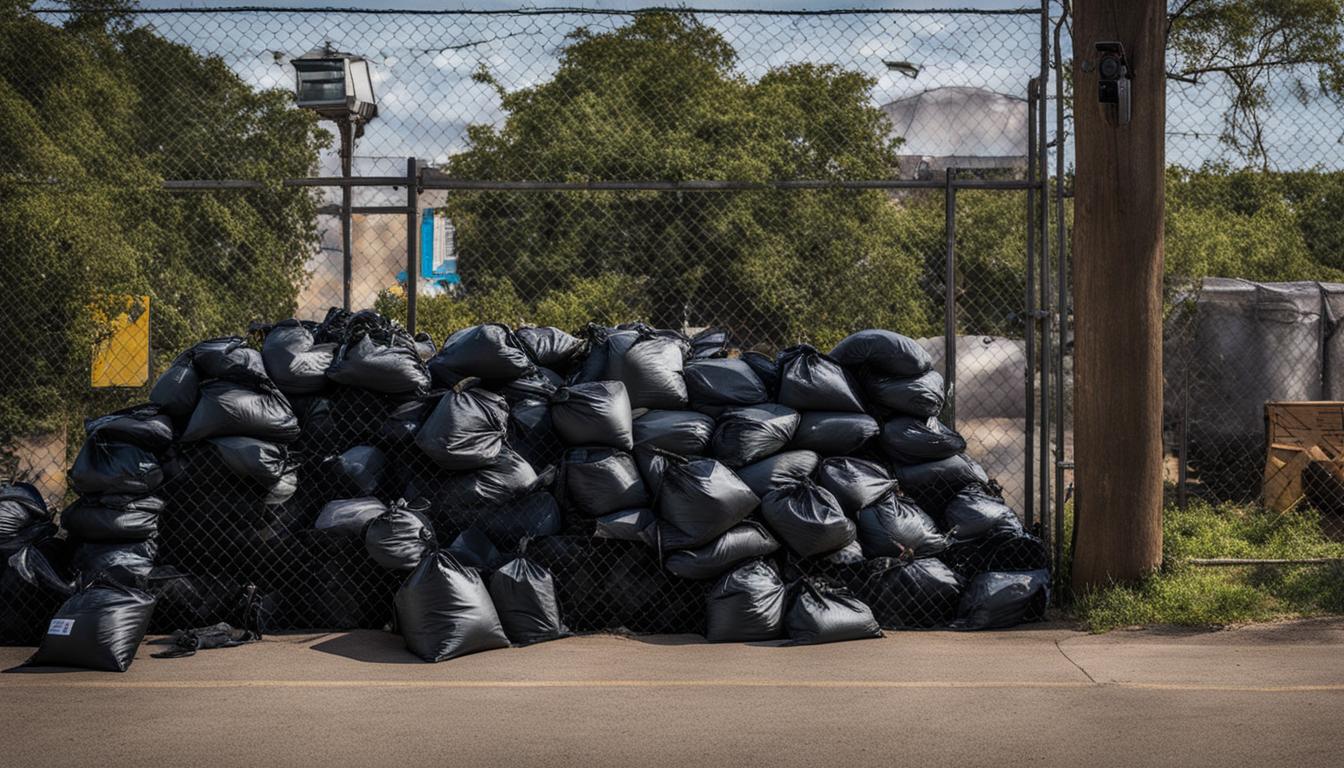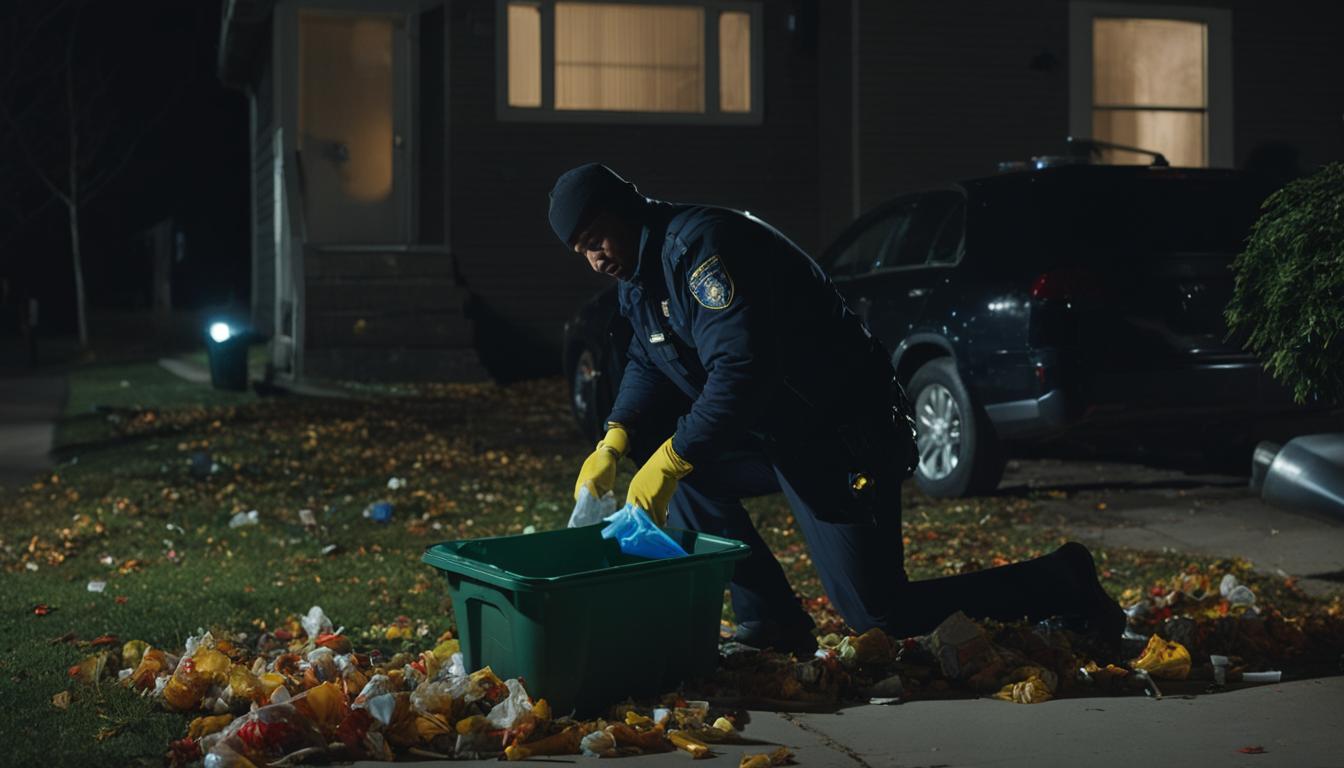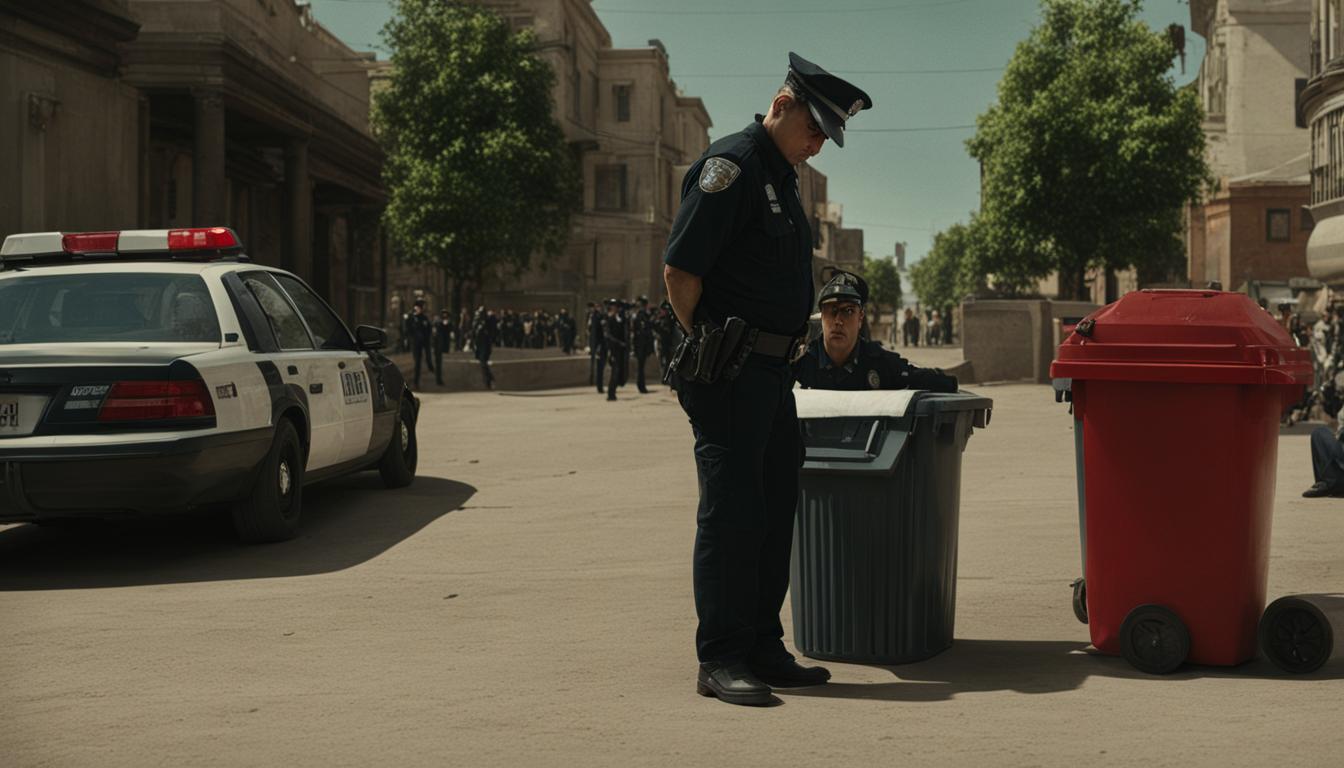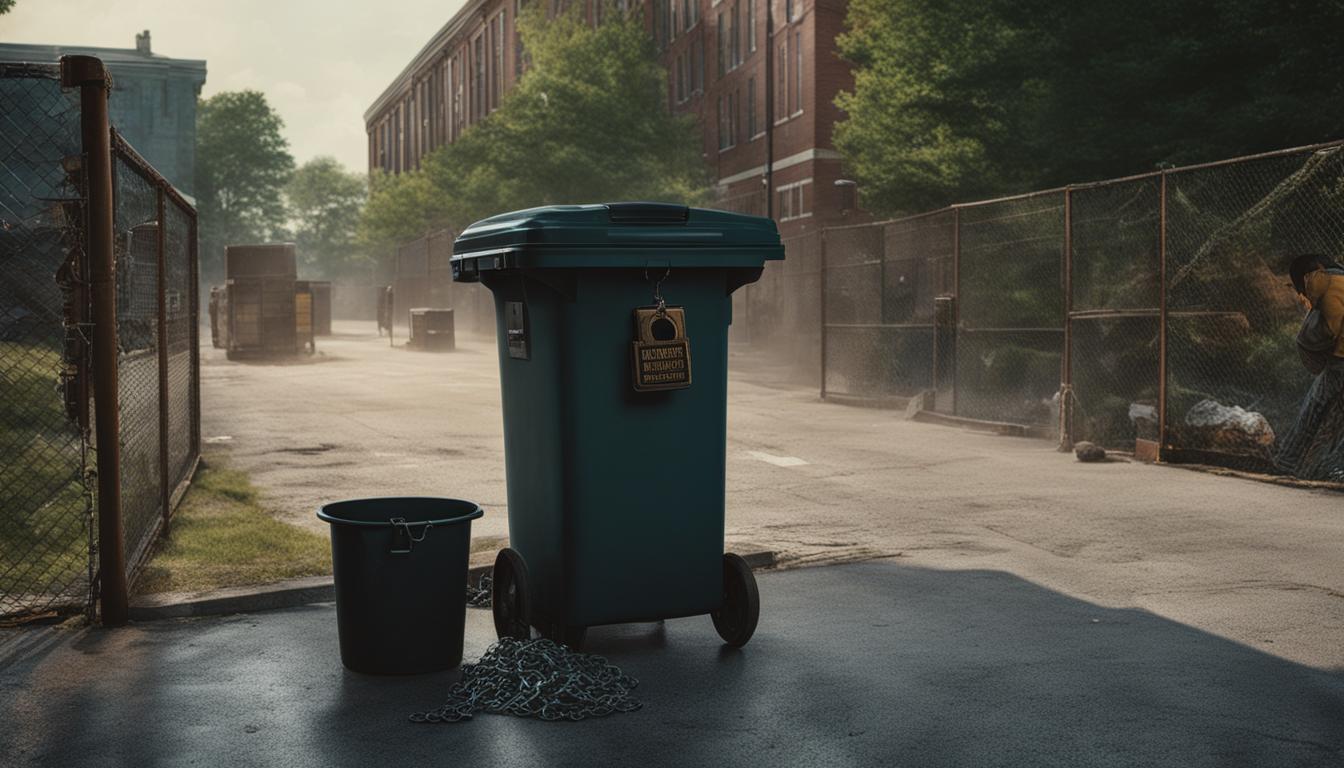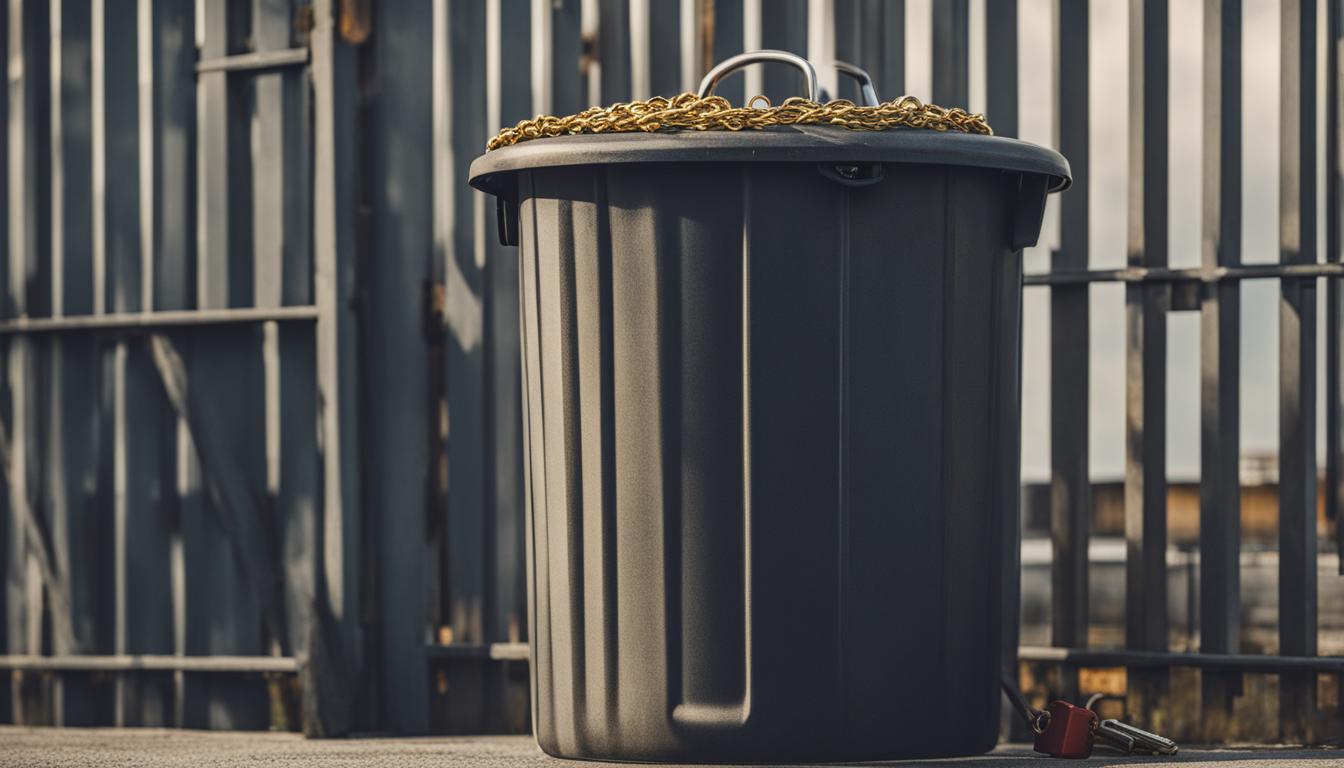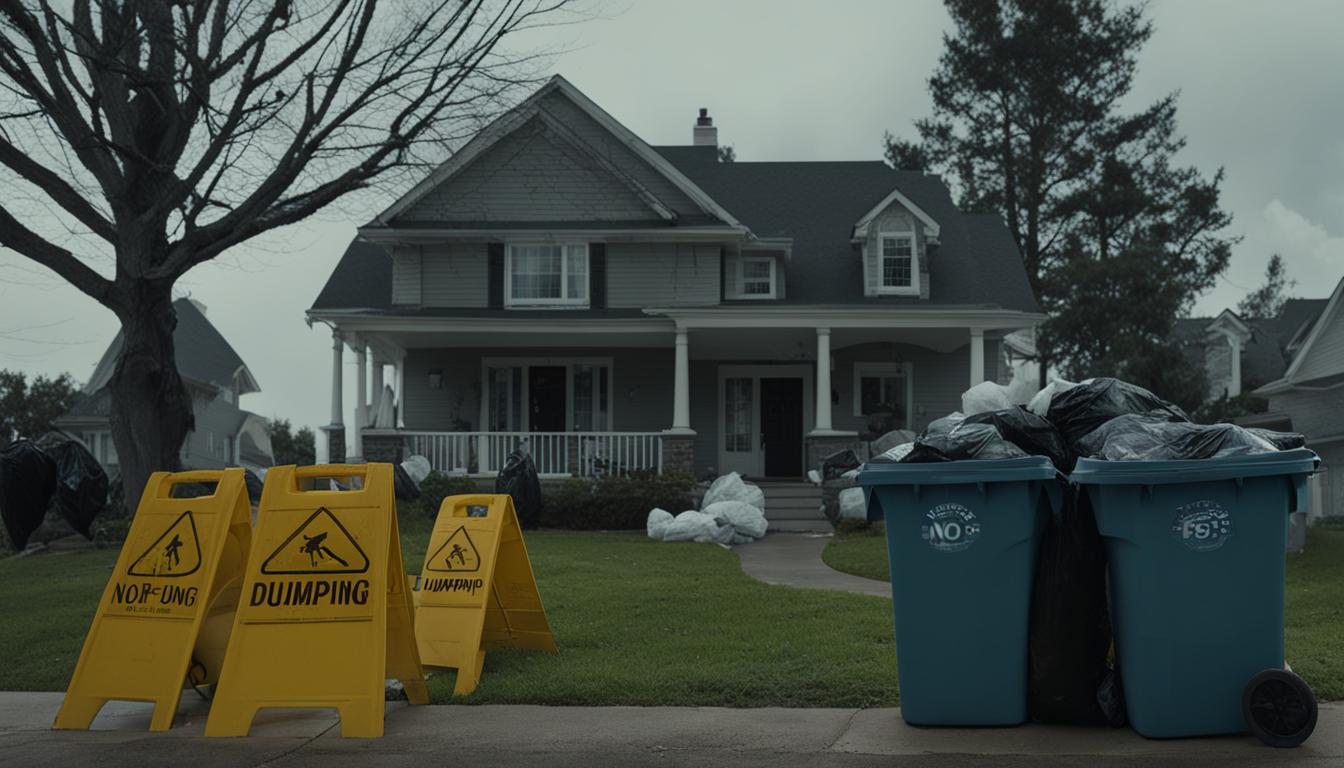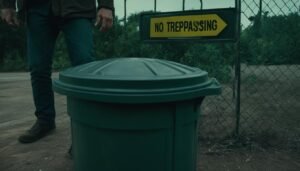Disclosure: This Post Contains Affiliate Links; We earn a commission on purchases.
When it comes to dumpster diving and trash searching in Kansas, understanding the legal implications and privacy rights is essential. Many people wonder if it is illegal for someone to go through their trash in Kansas and what the Kansas laws say about dumpster diving. Let’s explore the regulations and limitations surrounding this activity in the state.
Key Takeaways:
- Dumpster diving is generally not illegal in Kansas, but individuals must comply with trespassing laws and adhere to city or municipality ordinances.
- Searching through trash on public property, such as garbage pickup curbs, is typically allowed as abandoned items no longer have ownership rights.
- However, going through trash on private property without permission can lead to charges of trespassing.
- It’s important to be aware of local laws and regulations, as some cities or counties may have specific restrictions or prohibitions on dumpster diving.
- Respecting privacy rights and obtaining permission before searching through trash on private property is crucial to avoid potential legal implications.
Legalities of Dumpster Diving in Kansas
Dumpster diving is not illegal in Kansas, but it is important for individuals to be aware of the legalities surrounding trespassing and the ordinances specific to their city or municipality. When engaging in dumpster diving, it is crucial to understand the laws and regulations to avoid potential legal consequences.
While dumpster diving is generally allowed on public property, such as garbage pickup curbs, it is essential to respect private property rights. Dumpster diving without authorization on private property can lead to trespassing charges, as every business and private dwelling is considered private property.
Searching through trash that is still inside a private residence can result in charges of trespass or theft, as individuals do not have the right to access someone’s private residence without permission. It is important to exercise caution and avoid dumpster diving near gates, fences, or other areas where access is restricted.
Dumpster diving at night is allowed in Kansas, but it is necessary to be mindful of one’s behavior. Engaging in illegal activities such as littering or illegal dumping while dumpster diving is strictly prohibited and can result in legal consequences.
Below is a brief summary of the legalities surrounding dumpster diving in Kansas:
- Dumpster diving is legal in Kansas.
- Trespassing charges can be filed if dumpster diving is done without authorization on private property.
- Searching through trash that is still inside a private residence can lead to charges of trespass or theft.
- Caution should be exercised to avoid illegal activities such as littering or illegal dumping while dumpster diving.
It is important to stay informed about the limitations and restrictions on trash searches in Kansas. Each city or municipality may have specific regulations, so individuals should familiarize themselves with the local laws before engaging in dumpster diving activities.
Additional Resources:
“Kansas Statutes Annotated – Chapter 21: Crimes and Punishments.”
For more detailed information on the legalities of dumpster diving in Kansas, refer to the Kansas Statutes Annotated – Chapter 21: Crimes and Punishments.
Overview of Dumpster Diving Legalities in Kansas
| Legal Aspect | Summary |
|---|---|
| Trespassing | Dumpster diving without authorization on private property can lead to trespassing charges. |
| Private Residences | Searching through trash inside a private residence can result in charges of trespass or theft. |
| Illegal Activities | Engaging in activities such as littering or illegal dumping while dumpster diving is strictly prohibited. |
Privacy Rights and Trash Searching in Kansas
In Kansas, individuals have the right to privacy, and this extends to the contents of their trash. As such, the discarded items in someone’s trash are generally considered private. However, it’s important to note that once the trash is left in a public dumpster, the ownership rights are effectively relinquished, as established by the Supreme Court ruling in California v. Greenwood.
This means that searching through trash in public dumpsters does not violate privacy rights since the items are considered abandoned. However, it’s crucial to respect the boundaries of privacy when it comes to trash still inside a private residence. Searching through trash in this context can lead to charges of trespass or theft due to the expectation of privacy within someone’s personal property.
To ensure compliance with the laws and regulations in Kansas, it’s essential to understand and follow the statutes on searching someone’s trash and the limitations on trash searches. By doing so, individuals can engage in dumpster diving activities while remaining within legal boundaries.
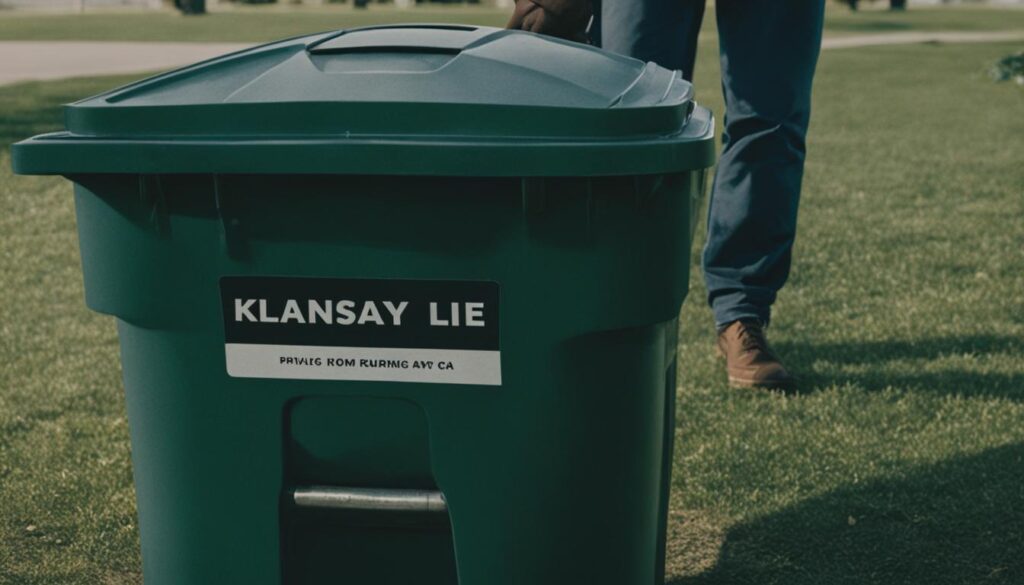
Summary of Kansas Statutes on Trash Searches
| Property Type | Ownership Rights | Legal Implications |
|---|---|---|
| Public Dumpster | Relinquished | No violation of privacy rights |
| Private Residence | Retained | Can result in charges of trespass or theft |
It’s important to understand that dumpster diving should be conducted in accordance with the laws and regulations surrounding trespassing and privacy in Kansas. Respecting privacy rights is crucial even when engaging in activities such as trash searching.
By being aware of the statutes and limitations on trash searches in Kansas, individuals can exercise their rights responsibly and avoid legal consequences.
Dumpster Diving Guidelines and Recommendations in Kansas
Although dumpster diving is legal in Kansas, it’s essential to follow certain guidelines and recommendations to ensure a respectful and lawful practice. By adhering to these guidelines, you can engage in dumpster diving while minimizing any potential legal implications.
Obtain Permission
Before searching through trash on private property, it’s crucial to obtain permission from the property owner. Respecting the rights of property owners helps maintain a positive relationship and ensures a legal practice.
Avoid Restricted Areas
When engaging in dumpster diving, it’s important to steer clear of gated areas, fences, or other spaces where access is restricted. This helps prevent any potential trespassing charges and promotes a responsible approach.
Handle Discarded Items with Caution
While searching through dumpsters, it’s essential to exercise caution when handling discarded items. Ensuring personal safety and hygiene should be a priority. Using gloves, if necessary, and being mindful of any potential hazards can help minimize risks.
Comply with Local Laws and Regulations
It’s crucial to be aware of and comply with any specific local laws and regulations regarding dumpster diving in your city or county. Some municipalities may have additional restrictions or prohibitions that you need to follow.
Behavior and Best Practices
When dumpster diving at night, be mindful of your behavior to avoid engaging in illegal activities such as littering or illegal dumping. Respecting public spaces and maintaining cleanliness demonstrates responsible dumpster diving practices.
The image above illustrates the importance of following dumpster diving guidelines in Kansas. By practicing dumpster diving responsibly and legally, you can explore this activity while respecting others’ property rights and promoting a clean environment.
Conclusion
Dumpster diving is a legal activity in Kansas, provided individuals adhere to the laws and regulations regarding trespassing and privacy. While it is not illegal to search through discarded items in public dumpsters, it is crucial to obtain permission before accessing trash on private property. Following the ordinances and statutes of the city or municipality is essential to ensure a legal practice.
When dumpster diving on public property, such as garbage pickup curbs, individuals should exercise caution to avoid engaging in illegal behavior. It is important to be aware of local laws and regulations regarding dumpster diving, as specific restrictions or prohibitions may exist in certain cities or counties.
By understanding the guidelines and recommendations for dumpster diving in Kansas, individuals can engage in this activity while minimizing potential legal implications. Respecting privacy rights and seeking permission from property owners when necessary is essential to ensure a legal and respectful practice. By following these guidelines, dumpster diving can be a rewarding and lawful way to find discarded treasures.
Source Links
- https://www.legalmatch.com/law-library/article/is-dumpster-diving-illegal.html
- https://bizarrehobby.com/kansas-dumpster-diving/
- https://www2.ljworld.com/news/2005/jul/30/one_mans_trash_not_legally_anothers_treasure/

Subscribe to Our Newsletter

